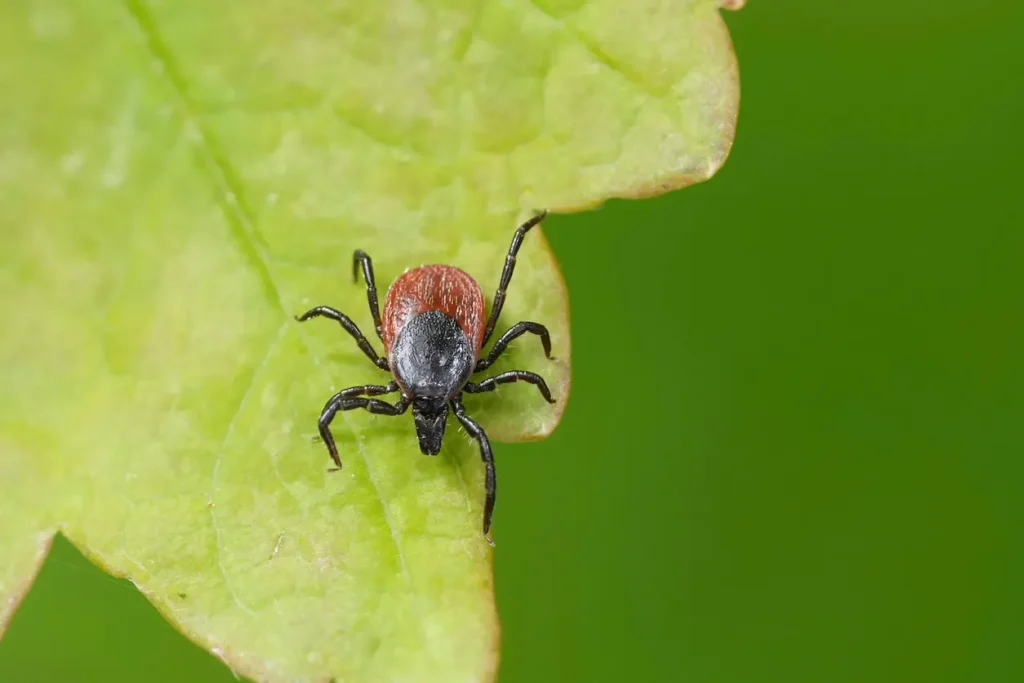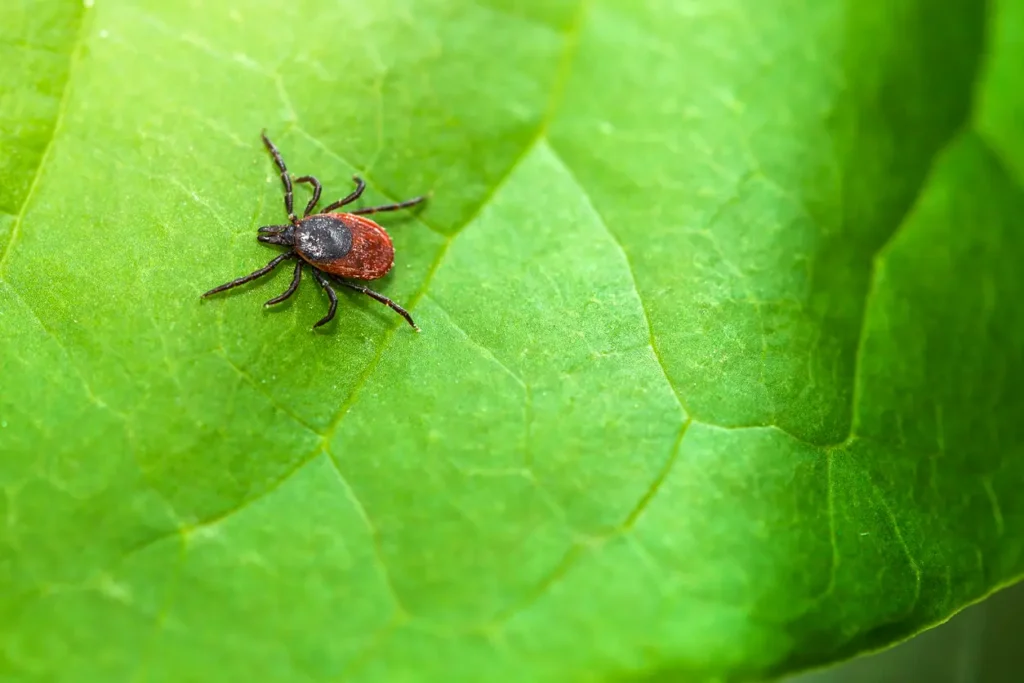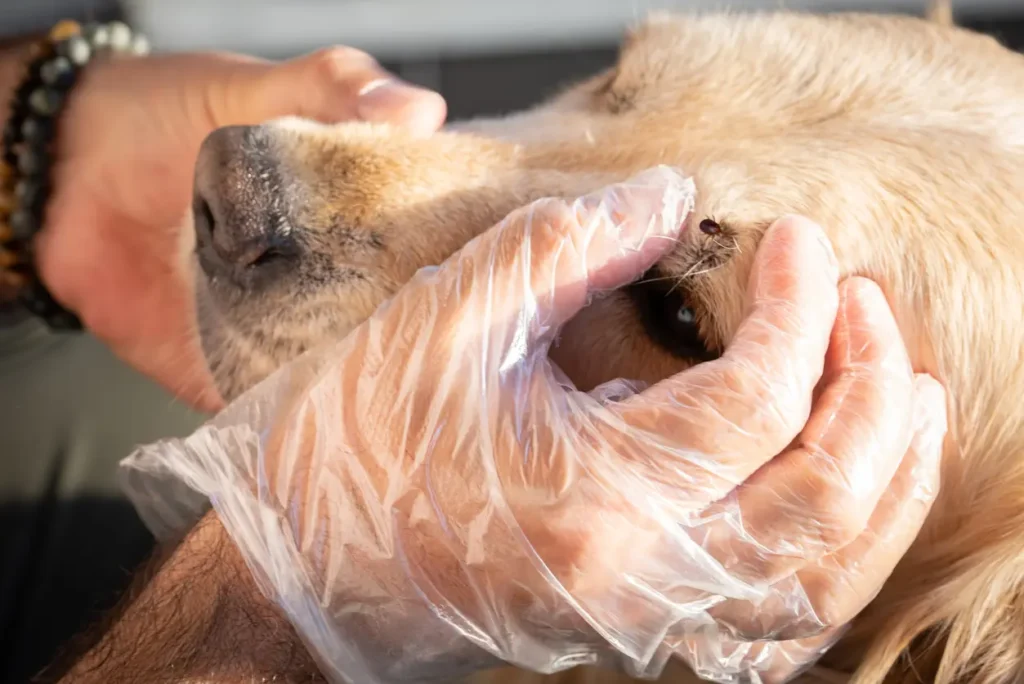
Tick Control Services in Dorchester County, SC
Dorchester County, SC, is known for its small-town charm, sprawling neighborhoods, and its unique mix of Lowcountry landscapes—from the banks of the Ashley and Edisto Rivers to the shaded trails around Colonial Dorchester State Historic Site. But the very conditions that make this area so appealing—humid summers, abundant shade, and lush vegetation—also create a perfect breeding ground for ticks. For families, pet owners, and anyone who enjoys spending time outdoors, these pests are more than an annoyance—they can transmit dangerous diseases. That’s why effective, professional tick control is essential to protect your loved ones and reclaim your yard.
At All U Need Pest Control, we understand the unique challenges of tick control in Dorchester County. With decades of experience treating properties throughout the Lowcountry, our team uses eco-conscious products and proven strategies to break the tick life cycle. By combining precise inspections, targeted treatments, and practical homeowner guidance, we deliver immediate relief and lasting protection, no matter the season.
If ticks are keeping you from enjoying your backyard, garden, or porch, don’t wait for populations to explode after a warm spell or heavy rain. Call 1 (888) 239-BUGS or contact us online today. Our free consultations are tailored to Dorchester County communities, from Summerville and St. George to Ridgeville, North Charleston, and the neighborhoods surrounding Ashley River Park.
Our motto? "If they're not dead, we're not done!"
Pest Control Services in Dorchester County, SC
- Ant Control
- Bed Bug Control
- Beetle Control
- Cockroach Control
- Flea Control
- Home General Pest Control
- Hornet Control
- Millipede Control
- Mosquito Control
- Pantry Pest Control
- Rat & Rodent Control
- Scorpion Control
- Silverfish Control
- Spider Control
- Stink Bug Control
- Termite Control
- Wasp Control
- Winter Control

Understanding Tick Behavior
Ticks are parasitic arachnids that feed on the blood of mammals, birds, and sometimes reptiles. In Dorchester County’s subtropical climate—marked by long, humid summers and relatively mild winters—ticks remain active for most of the year. Moist, shaded environments common to this area—like wooded backyards, dense shrubs, and the edges of creeks or trails—give ticks the perfect place to thrive. Understanding their habits and life cycle is the first step toward reducing the risk of bites and keeping your property safer for family and pets.
The most common tick species found in Dorchester County include:
- Black-legged tick
- American dog tick
- Brown dog tick
- Lone star tick
These species are well adapted to Dorchester’s blend of forests, yards, and green corridors. The black-legged tick, often associated with Lyme disease, tends to linger in shaded, leafy areas and stays active even during cooler stretches. American dog ticks and lone star ticks are frequently found along tall grasses, fence lines, or trail edges, lying in wait for a host to pass by. The brown dog tick, notorious for infesting kennels and indoor spaces, makes consistent management especially important for pet owners.
Tick activity typically surges in the spring and remains high into late fall, fueled by humidity and warmth. The nymph stage—smaller and much harder to detect—is especially active during late spring and summer, yet still capable of spreading disease. This makes consistent prevention and prompt checks after outdoor activities critical in our area.
Here’s how to identify ticks:
- Adult ticks are about the size of an apple seed, while nymphs are closer to the size of a poppy seed. Males are often smaller than females.
- Ticks swell significantly after feeding, making them easier to spot.
- Their bodies consist of a small head and a larger abdomen.
- They have four pairs of legs—two pairs near the head and two near the back.
In Dorchester County, where many neighborhoods have wooded buffers, shaded lawns, and abundant wildlife corridors, yard hygiene combined with professional service is key. At All U Need Pest Control, we customize every plan to disrupt the tick life cycle and treat the specific areas where ticks hide—whether it’s along tree lines, under porches, or around pet areas.

Risks Associated With Ticks
Ticks in Dorchester County can transmit serious illnesses to both humans and pets. Recognizing these risks helps you act quickly, whether that means seeking medical attention or enhancing prevention measures. Not every tick bite leads to illness, but the area’s climate and outdoor lifestyle—weekend gardening, fishing trips, neighborhood walks, or afternoons at the park—make tick encounters much more likely.
Lyme Disease
Lyme disease is caused by the bite of an infected black-legged tick. Early symptoms may include fatigue, fever, headache, and the characteristic “bull’s-eye” rash at the bite site. Without prompt treatment, Lyme disease can progress to joint pain, neurological issues, and heart problems. In Dorchester County, reducing risk starts with consistent tick checks, wearing protective clothing outdoors, and keeping your yard well maintained. Professional treatments add another layer of defense, significantly lowering the chance of a bite around your home.
Rocky Mountain Spotted Fever
Rocky Mountain Spotted Fever (RMSF) is transmitted by ticks, most commonly the American dog tick. Symptoms include fever, headache, and a spreading rash. Left untreated, the disease can lead to severe complications. If you suspect exposure—especially if you find a tick or experience symptoms—seek medical attention immediately. By reducing tick habitat and using targeted treatments, you can greatly minimize the risk of encountering infected ticks.
Tick Paralysis
Tick paralysis happens when a neurotoxin in a tick’s saliva causes muscle weakness that can progress quickly, particularly in pets. Prompt removal of the tick typically resolves the issue, but catching it early is critical. For Dorchester pet owners, combining vet-recommended preventives, regular checks, and routine yard treatments provides a strong defense against this dangerous condition.
While no single method eliminates risk completely, combining smart property management, personal protection, and professional tick control significantly reduces the likelihood of tick-borne illness in Dorchester County homes.

Signs of Tick Infestation
Identifying a tick issue early prevents it from becoming a major problem. Whether you’re in a Summerville subdivision, a St. George farmhouse, or a shaded Ridgeville lot, watch for these signs that you may need professional intervention:
Bites
Small, irritated red marks on the skin often indicate tick bites. Some people may also develop swelling, rashes, or symptoms like fatigue, fever, or headaches. Minor bites can often be treated with an over-the-counter antibiotic ointment, but if symptoms escalate, medical evaluation is crucial.
Ticks on Pets
Ticks frequently attach to pets after time in the yard or walks along trails and fence lines. Check common hiding spots like ears, collars, tails, and between toes. If you regularly find ticks on your pet, it’s a sign your yard is hosting a population that needs professional attention.
Tick Eggs
Clusters of tiny reddish-brown eggs in shaded, humid spots—such as leaf litter, crawl spaces, or kennels—can indicate a breeding population. While DIY methods may temporarily address surface eggs, professional treatment is often needed to disrupt the life cycle and prevent population surges during warm, humid stretches.
Ticks in Your Yard
Tall grass, leaf piles, and dense shrubs are prime hiding spots. In Dorchester County, ticks are often found around wood lines, ornamental bushes, or even stacks of firewood. If you’re consistently finding ticks on pets or clothing after time outside, it’s time for a professional inspection.

Effective Tick Treatment Methods
At All U Need Pest Control, our approach blends science-driven solutions with local expertise to eliminate ticks and prevent their return. Every treatment plan is tailored to your property’s unique layout, your family’s habits, and Dorchester County’s seasonal patterns.
Habitat Modification
Environmental changes are among the most effective ways to reduce tick populations. Here are a few techniques:
- Seal any gaps or cracks where ticks could enter your home.
- Trim shrubs, grass, and plants to remove hiding spots.
- Clear away stacked firewood, rocks, and leaves where ticks may shelter.
- Open up shaded areas to sunlight, drying out moisture that attracts ticks.
In Dorchester County’s humid climate, we often recommend creating gravel or mulch buffers between wooded edges and lawns, and placing pet or play areas in sunny, well-drained spaces.
Chemical Treatments
For persistent infestations, targeted chemical treatments quickly reduce tick numbers. Our technicians treat tick “hot zones” like brushy borders, fence lines, and kennel areas, using professional-grade products designed for safety and effectiveness.
Targeted Applications
When infestations are severe, precision applications focus on the exact areas where ticks breed and travel. This species-specific approach helps prevent rapid population rebounds, which is especially critical during Dorchester’s long warm season.
Education
We believe informed homeowners are the best partners. Our technicians explain where ticks are most active, offer guidance on pet management, and share simple landscaping tips to keep your yard less inviting to ticks year-round.
Our comprehensive process includes:
1. Inspection
We start with a full property assessment, mapping out high-risk areas like shaded corners, crawl spaces, and pet paths. This ensures a treatment plan customized to your specific situation.
2. Treatment
Next, we apply targeted treatments in the areas where ticks hide—along fence lines, under decks, and around shaded beds. Every application is timed and calibrated to local weather conditions for maximum impact.
3. Maintenance
Regular follow-ups keep populations in check, particularly before spring spikes or after heavy rain. Maintenance treatments help protect your property and provide year-round peace of mind.

Pet-Safe and Eco-Friendly Solutions
Your family, pets, and Dorchester’s ecosystems are always our priority. That’s why our solutions focus on effective control with minimal environmental impact.
Earth-Friendly Treatments
Whenever possible, we use botanically derived or reduced-risk treatments applied directly to tick habitats, keeping recreational areas safe and comfortable.
Minimum-Risk Pesticides
We avoid blanket applications and instead target specific areas with products that balance safety and effectiveness—ideal for families with children or elderly relatives.
IPM
Our Integrated Pest Management (IPM) approach ties everything together—inspection, habitat management, targeted treatments, and consistent monitoring. In Dorchester County, this method accounts for humidity patterns, shaded yards, and local wildlife movement to provide steady, reliable results.

How to Prevent Ticks
Daily habits paired with professional service can greatly reduce tick encounters. Here’s how Dorchester County homeowners can stay protected:
Change Your Landscaping
Keep lawns trimmed, clear leaf litter, and thin dense shrubbery, especially near wooded edges. Create gravel or mulch borders to separate lawn areas from natural vegetation.
Invest in Tick Repellents for Pets
Use veterinarian-approved preventives year-round, and check pets after time outside—especially near wooded trails, parks, or riverbanks.
Spray Repellent on Your Clothes
Before yardwork or hikes, apply an EPA-approved repellent to clothing and shoes, where ticks are most likely to latch on.
Wear the Right Clothing
Lightweight, long sleeves and pants can help reduce skin exposure. Light-colored fabrics make it easier to spot ticks before they attach.
Check for Ticks After Outdoor Activities
After outdoor time, shower and perform a full-body tick check. Use a mirror to check common areas like behind the knees, the scalp, and around the waistline.
Avoid Areas That Might Contain Ticks
Stick to the center of trails when hiking and keep pathways clear at home to minimize exposure.

Choose All U Need Pest Control for Tick Control in Dorchester County, SC
Ticks don’t have to limit your enjoyment of Dorchester County’s outdoor lifestyle. Whether you live in a Summerville neighborhood, along the Ashley River, or on a quiet Ridgeville lot, All U Need Pest Control offers proven solutions tailored to your property and your family’s needs.
We don’t just aim for quick results; we build long-term protection so your yard remains a safe, comfortable place for relaxing, entertaining, and letting the kids or pets roam freely.
Call 1 (888) 239-BUGS or reach out online today to schedule your inspection and receive a customized tick control plan for Dorchester County, SC. With All U Need Pest Control, you’ll take back your yard—and enjoy the outdoors without the worry.
Location Contact:
419 N Cedar St Summerville, SC 29483
Get Directions for 419 N Cedar StSummerville, SC 29483 on Google Maps843-489-8818
Call All "U" Need Pest Control